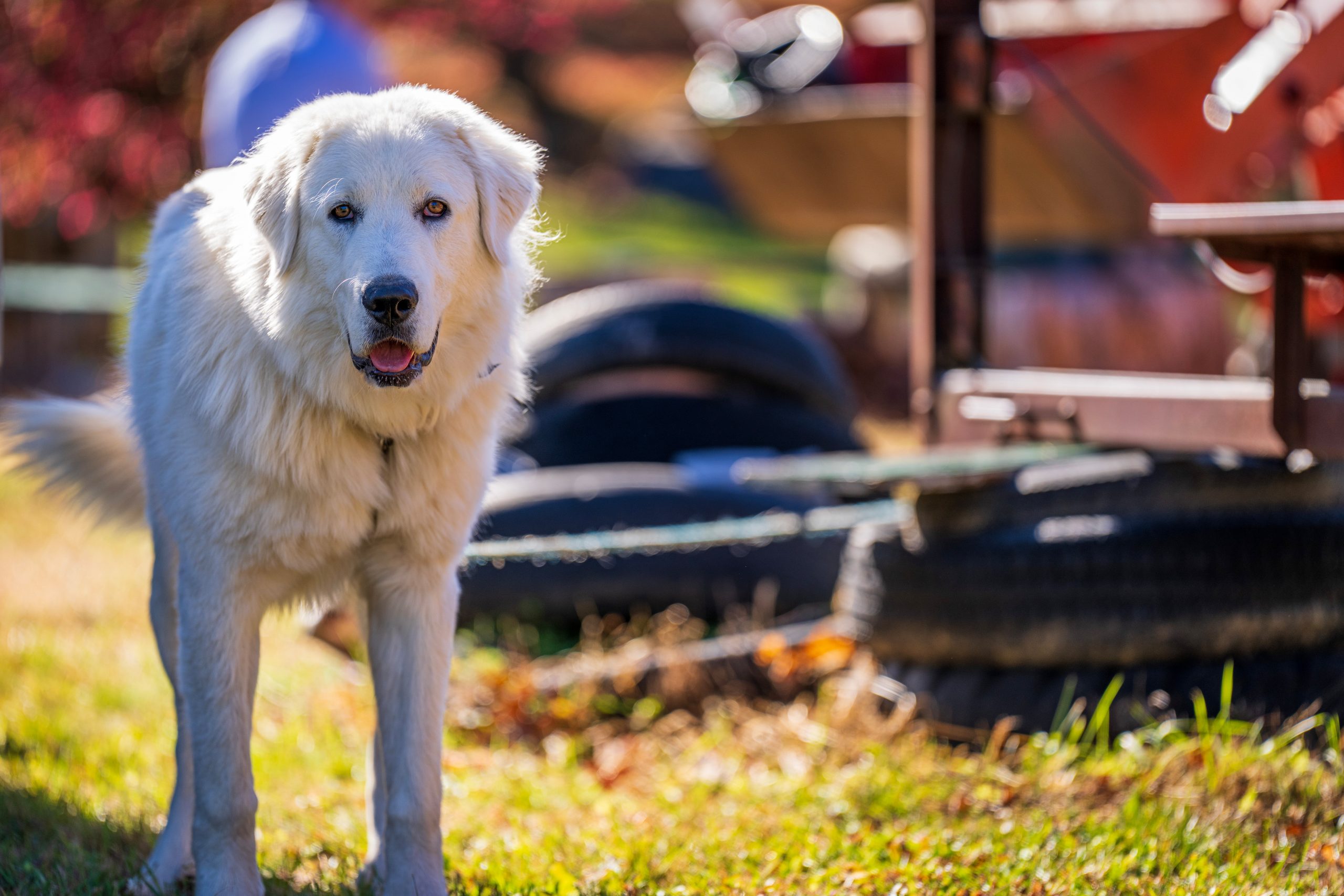Embracing a Great Pyrenees into your life means preparing for the responsibility of caring for a large breed dog. Their size alone indicates that expenses such as food and healthcare can be significant. Additionally, their thick coats require consistent grooming, and their working dog lineage means they benefit from regular exercise and mental stimulation. The costs covered here will provide potential and current owners with a clear monthly financial expectation.
1. Food
Given their size, the Great Pyrenees will have considerable dietary requirements. Monthly food costs can range from $80 to $120, depending on the dog’s weight, age, and the quality of the food. A diet rich in protein and formulated for large breeds is essential for their health and wellbeing.
2. Treats
Treats are crucial for training and bonding, and for a Great Pyrenees, you can anticipate spending $20 to $40 per month. Opting for healthy, substantial treats that cater to their size is recommended.
3. Veterinarian
Veterinary expenses, including regular check-ups, vaccinations, and preventative treatments, can average $70 to $150 monthly for a Great Pyrenees. Their large breed status often brings additional health concerns that can require more specialized care.
4. Toys
Toys and enrichment activities are essential, especially for a breed that was bred to work. Owners should budget $15 to $35 per month for durable toys designed for large breeds that can provide mental and physical stimulation.
5. Accessories
Accessories such as leashes, collars, beds, and grooming supplies for a Great Pyrenees may cost between $40 to $80 per month. The size and durability required for accessories for large breeds often come at a higher cost.
6. Grooming
Grooming a Great Pyrenees is a significant monthly expense, typically around $100 to $200. Their thick double coat requires regular professional grooming to maintain and manage, which is crucial to avoid matting and maintain coat health.
7. Training
Professional training for a Great Pyrenees can range from $50 to $100 per month. While they are intelligent, their independent nature can make consistent training a necessity for harmonious living.
8. Pet Insurance
Pet insurance for a Great Pyrenees can cost between $40 to $80 per month. Given their potential for certain genetic health issues, pet insurance can be a valuable investment.
9. Miscellaneous
Always account for miscellaneous costs, which can include emergency vet visits or replacing worn-out accessories, averaging $30 to $60 monthly. A contingency fund is crucial for unexpected expenses.
Conclusion
The overall estimated monthly cost to own a Great Pyrenees in 2023 can range from $425 to $765. While owning a Great Pyrenees is a significant financial undertaking, the loyalty and companionship they offer are immeasurable. Proper budgeting and understanding of these costs are key to providing a loving and stable home for these noble dogs.
Frequently Asked Questions About The Cost of Owning A Great Pyrenees
1. How much does it cost to feed a Great Pyrenees each month?
The monthly cost to feed a Great Pyrenees typically ranges from $80 to $120. This amount can vary based on the dog’s size and activity level, as well as the quality of the dog food. High-quality, large-breed-specific dog food that provides proper nutrition is essential for their health.
2. What should I budget for treats for my Great Pyrenees?
You should budget approximately $20 to $40 per month for treats for your Great Pyrenees. Healthy treats are important for such a large dog, and they can be used effectively as part of a training regimen or as occasional rewards.
3. What are typical veterinary costs for a Great Pyrenees?
Typical veterinary costs for a Great Pyrenees can average $70 to $150 per month. This includes routine care such as vaccinations, check-ups, and preventative medications. Due to their size and potential breed-specific health issues, additional costs may arise.
4. How much do I need to spend on toys for the Great Pyrenees each month?
You should expect to spend about $15 to $35 per month on toys for the Great Pyrenees. Durable toys that can stand up to their size and strength are necessary, and a variety of toys is recommended to keep them engaged.
5. What is the cost of accessories for a Great Pyrenees?
The cost of accessories for a Great Pyrenees, including beds, collars, and leashes, can range from $40 to $80 monthly. The larger size and heavier wear can drive up the cost of these items.
6. How much will grooming a Great Pyrenees cost per month?
Grooming a Great Pyrenees can cost between $100 to $200 per month. Their thick, double coat requires regular brushing, and professional grooming is necessary to manage their dense fur and prevent matting.
7. Is training a Great Pyrenees expensive?
Training a Great Pyrenees can be expensive, potentially costing between $50 to $100 per month for professional training services. Their independent nature can make training a challenge, so professional guidance is often helpful.
8. How much does pet insurance for a Great Pyrenees cost?
Pet insurance for a Great Pyrenees typically ranges from $40 to $80 per month. The cost can be worth it to cover unexpected medical expenses, especially for a breed prone to certain health conditions.
9. What miscellaneous costs are associated with owning a Great Pyrenees?
Miscellaneous costs for owning a Great Pyrenees, including emergency vet visits, special dietary needs, or property adjustments for a large breed, can add an extra $30 to $60 to your monthly budget. It’s wise to have a contingency fund for these unpredictable expenses.
10. How does the monthly cost of owning a Great Pyrenees compare to smaller dog breeds?
The monthly cost of owning a Great Pyrenees is generally higher than that of smaller breeds due to their larger food intake, higher grooming costs, and the need for sturdier, often more expensive, accessories. Additionally, larger breeds can have higher medical expenses due to breed-specific health issues.

 Toledo, United States.
Toledo, United States.